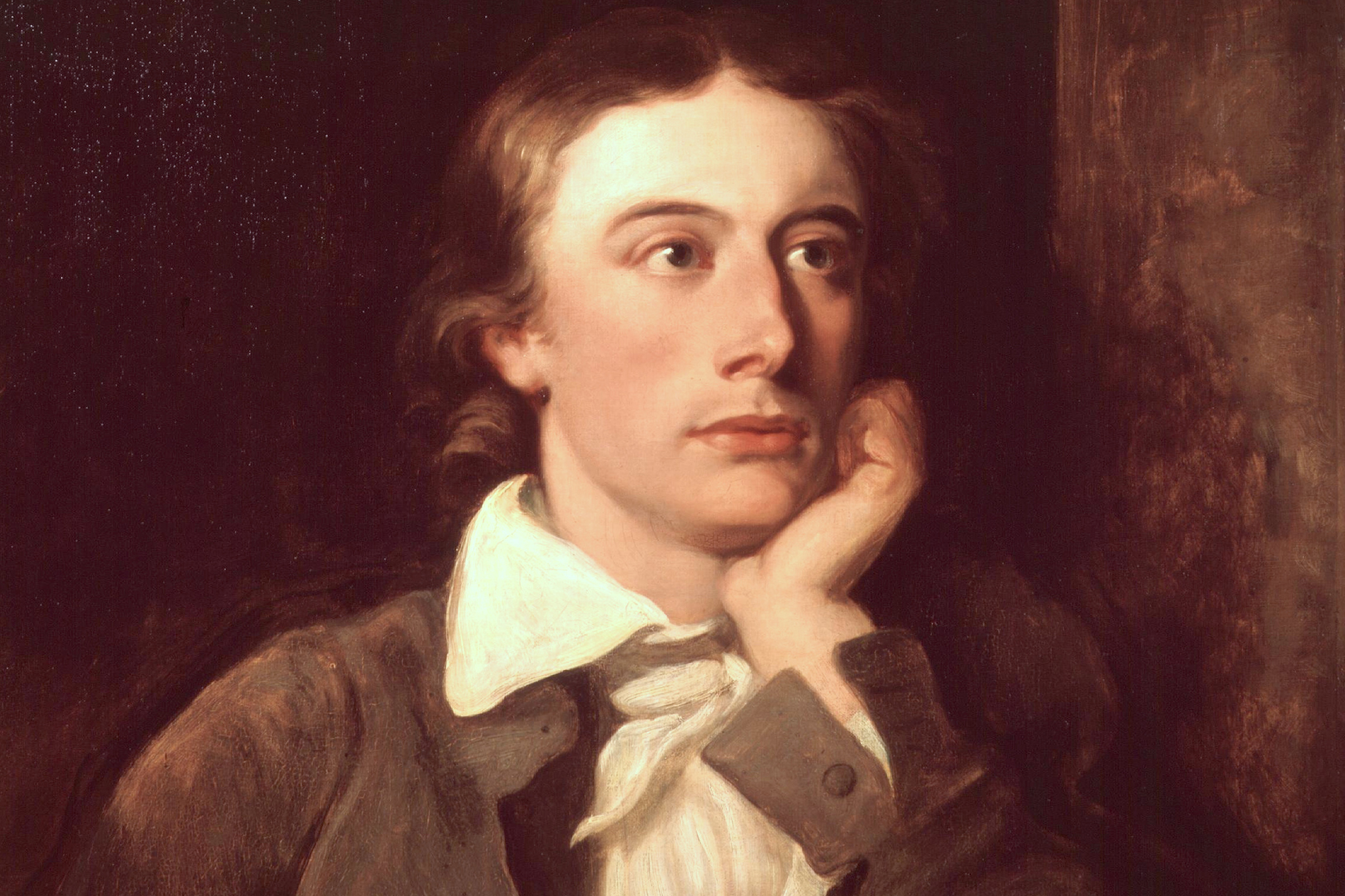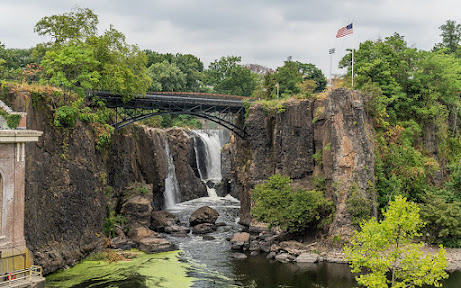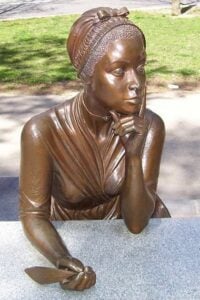I don't recall hearing that the late Queen Elizabeth II was much interested in poetry. Elizabeth I was quite a fan of Mr. Shakepseare's plays and poetry and she wrote some of her own poetry.
Her poem, "‘On Monsieur’s Departure," is thought to have been inspired by the breakdown of marriage negotiations between her and Francis, Duke of Anjou. This is her final stanza.
Some gentler passion slide into my mind,
For I am soft and made of melting snow;
Or be more cruel, love, and so be kind.
Let me or float or sink, be high or low.
Or let me live with some more sweet content,
Or die and so forget what love ere meant.
The lines remind me of the "cruel to be kind’ part in Hamlet that Shakespeare would later write. An influence?
Still, the British monarchy has long had its Poets Laureate. Shakespeare came before the position was established. The first poet was John Dryden (1668–89).
I saw recently the poem "Floral Tribute" by the British Poet Laureate Simon Armitage on the death of Queen Elizabeth II. It s a very flowery poem both literally and figuratively. The first stanza is:
Evening will come, however determined the late afternoon,
Limes and oaks in their last green flush, pearled in September mist.
I have conjured a lily to light these hours, a token of thanks,
Zones and auras of soft glare framing the brilliant globes.
A promise made and kept for life - that was your gift -
Because of which, here is a gift in return, glovewort to some,
Each shining bonnet guarded by stern lance-like leaves.
The country loaded its whole self into your slender hands,
Hands that can rest, now, relieved of a century's weight.
America has its laureates and it seems to be a position that brings attention to poetry and most laureates choose some project for their term. But from what I've read, the British laureates generally don't see that as their objective and some don't seem to enjoy the position. I don't think any of the modern-day ones have said that they produced their greatest work for that position. Tennyson wrote "Charge of the Light Brigade" when he was the laureate.
 |
| Tennyson |
Then again, attitudes towards the monarchy have changed since Tennyson's time and also during Elizabeth II’s long reign.
Laureates are asked (or ordered, or obligated?) to write occasional poems for, as one article cleverly described it, "royal hatches, matches and dispatches." A royal baby means a poem.
Being required to write a poem with a deadline and a theme for a big audience is not the same as writing one for Poets Online's latest call for submissions. One American example is writing a poem for a President's Inauguration.
In 2021, Amanda Gorman wrote “The Hill We Climb” and its opening lines tell us something of the time it marked.
We’ve seen a force that would shatter our nation rather than share it,
Would destroy our country if it meant delaying democracy.
And this effort very nearly succeeded.
But while democracy can be periodically delayed,
It can never be permanently defeated...
In 1961, Robert Frost was President Kennedy's Inaugural Poet. Rather famously, he was not able to read the poem he wrote because the glare of the sun off snow and the wind made it impossible for him to see his paper, so he recited from memory an older poem, “The Gift Outright.” Actually, JFK had asked if he would read that poem but Frost composed a shorter poem for the occasion called "Dedication" (later retitled "For John F. Kennedy His Inauguration") that he planned to use as a preface to "The Gift Outright."
Though we always have a Poet Laureate, not every President has asked for an Inaugural poem and poet.
The Frost poem Americans hear that day begins:
The land was ours before we were the land’s
She was our land more than a hundred years
Before we were her people. She was ours...
Across the pond, Carol Ann Duffy wrote "The Throne" on theoccassion of the 60th anniversary of the coronation in 2013.
...The crown translates a woman to a Queen
endless gold, circling itself, an O like a well,
fathomless, for the years to drown in – history’s bride,
anointed, blessed, for a crowning...
John Masefield was laureate from 1930-1967 and served several monarchs. American Laureates usually serve for 4 years but it varies. He was a popular Georgian and quite conservative poet (none of that Eliot and Auden odernism for him).
One of his poems for the Queen in 1953 is "Line on the Coronation of Our Gracious Sovereign." It opens with these rather lousy little rhymes.
This lady whom we crown was born
When buds were green upon the thorn
And earliest cowslips showed;
When still unseen by mortal eye
One cuckoo tolled his ‘Here am I’ …
Ted Hughes became Laureate in 1984 and served for 14 years. The first choice for the position was Philip Larkin, who turned it down. Hughes (maybe best known to some as Sylvia Plath's husband) was very English (as opposed to very British) and often wrote about the English countryside and nature, and was a royalist.
Not all of a Laureate's requests for poems come from the place. His publisher, Faber, asked him for a quatrain for the Queen’s silver jubilee. he gave them:
A Soul is a Wheel.
A Nation’s a Soul
With a Crown at the hub
To keep it whole.
"The Unicorn" was written on the 40th anniversary of her accession and I doubt it was one of Elizabeth's favorites.
Falstaff’s our only true-bred Fool,
His belly-laugh the only school
Where liberty guarantees the rule.
Let Licensed Clowns grab ears and eyes.
Britain, Falstaff in disguise,
Laughs with the Queen and keeps her wise.
Andrew Motion (1999-2009) was a Tony Blair modernisation period for the post which was now set at one decade. It also got a pay raise to £5,000 from the honorific £200. It still had no real job description. “The first time I met the Queen,” Motion wrote in the Guardian, “she said the same thing as Tony Blair, whom I’d also just met for the first time: ‘You don’t have to do anything.’ ”
Motion, a friend of popular American Laureate Billy Collins, saw his role as including being an ambassador for poetry. Collin's project was to create Poetry 180 - poems to be used in schools. Motion created the Poetry Archive, an online library of poets reading their own work.
Motion wrote only eight royal poems. The one that got the most attention - and not in a good way - was his "rap" poem for Prince William’s 21st birthday.
Better stand back
Here’s an age attack,
But the second in line
Is dealing with it fine.
I watched a video of Motion and Collins talking about being laureates. He said that “No other writing that I’ve undertaken, of any kind, has been so difficult … In every case, after I’d written these eight poems, I sent them to my agent, who sent them to newspapers, where they landed on news editors’ desks. News editors don’t think a poem is a story in and of itself, so they then get on the phone to as many people as it takes to find someone who doesn’t like the poem – then they have their story: poet laureate writes another no-good poem.”
Carol Ann Duffy’s appointment in 2009 made her the first woman, and the first openly gay person, to take on the role. She wrote a regular poetry column for the Daily Mirror. In that she wrote about many topical but not royal topics from the MPs’ expenses scandal, to HIV/Aids, and an injury to footballer David Beckham’s Achilles tendon.
I suspect that for most laureates on either side of the Atlantic, it is more public attention than poets normally get, expect or desire.
from Poets Online - the blog https://ift.tt/7Osc6TX


























